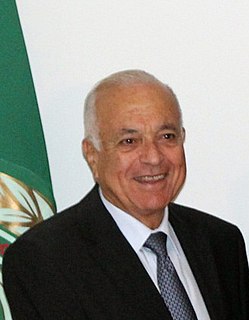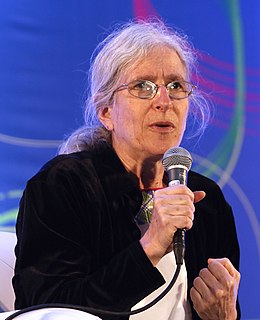Top 1200 Foreign Countries Quotes & Sayings - Page 15
Explore popular Foreign Countries quotes.
Last updated on December 22, 2024.
The great question for our time is, how to make sure that the continuing scientific revolution brings benefits to everybody rather than widening the gap between rich and poor. To lift up poor countries, and poor people in rich countries, from poverty, to give them a chance of a decent life, technology is not enough. Technology must be guided and driven by ethics if it is to do more than provide new toys for the rich.
Patriotism is proud of a country's virtues and eager to correct its deficiencies; it also acknowledges the legitimate patriotism of other countries, with their own specific virtues. The pride of nationalism, however, trumpets its country's virtues and denies its deficiencies, while it is contemptuous toward the virtues of other countries. It wants to be, and proclaims itself to be, "the greatest," but greatness is not required of a country; only goodness is.
Poverty cannot be accepted as a pretext and justification for the exploitation of children. It does not explain the huge global demand with, in many instances, customers from rich countries circumventing their national laws to exploit children in other countries. Sex tourism has spread its illicit wings wide, and paedophiles search for their victims in all parts of the globe. The problem is compounded by the criminal networks which benefit from the trade in children, and by collusion and corruption in many national settings.
What outrages me as a representative of journalists is that there's not more outrage about the number, and the brutality, and the cavalier nature of the U.S. military toward the killing of journalists in Iraq....They target and kill journalists ... uh, from other countries, particularly Arab countries like Al -, like Arab news services like Al-Jazeera, for example. They actually target them and blow up their studios with impunity.
There are Arab countries providing arms I don't know who they are, nobody comes and tells you 'we are providing arms', but what I say is providing arms and ammunition started with certain countries, I'll name them: Russia and Iran to Syria, so it's normal the other side will seek help .... The last resolution adopted less than three weeks ago said all assistance [to the opposition fighters], all assistance including military, it was added.
China had never had to deal in a world of countries of approximately equal strength, and so to adjust to such a world, is in itself a profound challenge to China, which now has fourteen countries on its borders, some of which are small, but can project their nationality into China, some of which are large, and historically significant, so that any attempt by Chinese to dominate the world, would involve in a disastrous for the peace of the world.
A people who free themselves from foreign domination will be free culturally only if,
without complexes and without underestimating the importance of positive accretions from
oppressor and other cultures, they return to the upward paths of their own culture, which is
nourished by the living reality of its environment, and which negates both harmful influences
and any kind of subjection to foreign culture. Thus, it may be seen that if imperialist
domination has the vital need to practice cultural oppression, national liberation is necessarily
an act of culture
A number of African countries came to us and said, we request that South Africa should not field a candidate, because so many other African countries wanted to, and, in any case, South Africa would continue to play a role in terms of building the African Union, and so on. And they actually said, please don't field a candidate, and we didn't. As I have said, it is not because we didn't have people who are competent to serve in these positions.
To make a concrete response to the appeal of our brothers and sisters in humanity, we must come to grips with the first of these challenges: solidarity among generations, solidarity between countries and entire continents, so that all human beings may share more equitably in the riches of our planet. This is one of the essential services that people of good will must render to humanity. The earth, in fact, can produce enough to nourish all its inhabitants, on the condition that the rich countries do not keep for themselves what belongs to all.
Russia always has been, and I hope always will be, one of the leading international sports countries. Our athletes still produce great results in international competition, set new records and win gold medals. Yes, like any country, we might have experienced certain ups and downs with regard to results, but in no way does this cast any doubt on Russia's status as one of the leading countries in sport.
Whereas nationalism still seeks power, honour, and glory through means that endanger other countries, patriotism knows that a country's strength and honour can only be permanently safeguarded through concourse with other countries. And whereas nationalism scoffs at the idea of international laws and regulations, patriotism seeks to create such.
I think East Asian countries, I think they're very fortunate to have Buddhism survive as a strong influence because right from the time when Buddha himself, 2,500 years ago, made the point about the importance of education, and the word "Buddha" also means enlighten[ed] or educated. So all the Buddhist countries, not only Japan and Korea and China and Hong Kong and Thailand but also even Burma and Sri Lanka, had a higher level of education.
As Muslims, our interests are our values. In any society, be it in Western or Muslim-majority countries, our duty is that of critical loyalty: Staying loyal to our countries by always being critically engaged in the name of the principles of justice, equality and human brotherhood. We should be the ethical and moral voice wherever we are by saying that, even though we understand economic and geo-strategic interests, we cannot accept a violation of these principles by any society.
I talk with countries, whether it's the Arab states or in the Middle East, and they talk about how they're glad to see us fighting against Iran. I talk with different countries in reference to Syria, and we talk about how we can get the Iranian influence out. We're talking about North Korea and what we need to do and the pressure we need to put on China. They're happy that we're finally beating up on Russia for what they've done in the Ukraine.
There is something very consistent about governance in the Arab world. Among the Arab countries today in which there is a modicum of internal stability, each is controlled by an Arafat-type figure - an anti-democratic strongman who is able to crush all challenges to his authority. Likewise, among those Arab countries that aren't ruled by a despot, the political dynamic is also consistent: In Lebanon, Iraq, and now Gaza, sectarian violence is the dominant form of political expression.
We hear from time to time about horrible human rights atrocities happening around the globe. Our government claims that it stands in favor of human rights, and our leaders are in the news demanding consequences for other countries that are abusing their populations. But there is a huge denial about how widespread and common these kinds of atrocities are in the United States, and that we are not nearly as different from other countries as we would like to believe we are.
Some European countries insist on saying that during World War II, Hitler burned millions of Jews and put them in concentration camps. Any historian, commentator or scientist who doubts that is taken to prison or gets condemned. Although we don't accept this claim, if we suppose it is true... If the Europeans are honest they should give some of their provinces in Europe - like in Germany, Austria or other countries - to the Zionists and the Zionists can establish their state in Europe. You offer part of Europe and we will support it.
With support jobs moving to China and India, it's not surprising that English-speaking countries' top frustration revolves around the difficulty of understanding customer service representatives. However, even if the level of customer service is exceptional, the extent to which poorly-understood accents trump quality of service speaks to English-speaking customers' growing intolerance of non-native speech, more so than in other countries.
We're going to bring a lot of money in on trade. We're going to bring a lot of money on reciprocal. You know, as an example, when you have countries with a big tax and we get nothing for the same product and we're paying - our companies are paying 100 percent tax in some countries and if they send their product to us we pay nothing. Doesn't make sense.
We should recall that during the Second World War and the Great Depression there was an upsurge in popular, radical democracy. In all over the world. It took different forms, but it was there, everywhere. In Greece it was in the Greek revolution, and so on. And it had to be crushed. In countries like Greece, it was crushed by violence. In countries like Italy, where the US forces entered in 1943, it was crushed by attacking and destroying the anti-German partisans and restoring the traditional order.
We spoke about economic sanctions only recently in Lima, within the framework of APEC. Almost all the leaders represented at APEC (the Asia Pacific region), Pacific countries, spoke about the same thing, namely, that we are going through a very acute crisis in world trade, international trade, related, among other things, to restrictions on the markets of certain countries.
I think the problem with John Bolton is he disagrees with President Trump's foreign policy. He would be closer to John McCain's foreign policy. John Bolton still believes the Iraq war was a good idea. He still believes that regime change is a good idea. He still believes that nation-building is a good idea.
There is nothing puzzling ... about America's gratuitously aggressive foreign policy or about the oligarchs' successful efforts to drag the Republic into five wars. What an aggressive foreign policy accomplishes by slow degrees, a state of war accomplishes in a trice. Overnight [war] kills reform, overnight it transforms insurgents into traitors and the Republic into an imperiled realm. Overnight it strangles free politics, distracts and overawes the citizenry. Overnight it blasts public hope.
The term 'human rights' has been too often associated with conditionality, and with concerns of developing countries that in order to benefit from open trade they would be required to implement immediately labour and environmental standards of a comparable level to those applied in industrialised countries. At the same time, debates about the primacy of trade as against human rights legal codes have contributed to maintaining the unfortunate impression that the two bodies of law are pursuing incompatible aims.
If we are going to talk about the most recent of the "Indignados" movements in several countries of the world, including Europe, those are social movements but eventually they will evolve into political movements. This will happen because the traditional bourgeois parties have lost credibility after being the main political influence in most countries of Latin-America and Europe in the last 50 or 60 years.
The Women's World Cup gives FIFA a chance, once every four years, to showcase the growth of women's soccer. It gives FIFA a highly visible opportunity to encourage countries around the globe to also support their women's programs. It gives FIFA the forum to show countries the potential of women's soccer if only you support it.
The truths which are represented in England and Western countries generally, are those which refer to force of character, earnestness of purpose, conscientious strictness, noble charity, practical duty, whilst the truths which I find peculiarly developed in India - developed to a greater extent than anywhere else, - and in the Eastern countries generally, are those which have reference to sweetness of communion, sweetness of temper, meekness and resignation unto God.
Climate change hype has grave real world consequences. It gets rich countries to adopt silly policies and to impose devastating eco-imperialism on poor countries. The world's rich millions can afford environmental extremism; its poor billions can't. Climate change pseudo-science about human causality has been exposed repeatedly. What's less appreciated is that there aren't more natural disasters in need of an explanation.
My guess is the big Chinese banks will be in 100?countries by then. They will have very sophisticated operations, and they may very well have bought banks around the world in countries that allow it. I mean, I don't think the American government would allow them to buy JPMorgan. But they will be able to buy a sizable big bank in the U.S. at some point. Whether they do or not, or if it's allowed or not, I don't know.
I think the retirement crisis globally is a major problem. I think it's especially prevalant in countries such as Japan, where immigration is an issue. I think the US is more shielded from it than most countries in the world. It has a higher birth rate than Japan, immigration is tolerated here unlike probably it is in Japan. I don't think it's as big an issue in the US as it is elsewhere in the world.
The cases involving the question of whether U.S. courts should be open to claims of international human rights violations brought by foreign persons against foreign government officials. And the State Department on the one side has got a very consistent and powerful view that U.S. courts should be open to those claims because there needs to be a place in the world where they can be brought. And those human rights norms ought to be real and enforceable, and we ought to be a beacon to the world.
Mike Pence came out and said this was a courtesy call, then Donald Trump a few hours later went on Twitter, as is his wont, and essentially linked the call to Taiwan with a whole series of things he doesn't like about Chinese economic and foreign policies and implied that the U.S. views of the status of Taiwan are now up for negotiation, that he wants them to be part of a broader negotiation with China about a whole series of economic and foreign policy issues. So, we just don't really know what exactly they're planing to do with this.
Earlier the world was bi polar. Foreign policy would be centered around two super powers. India was a little late in realizing that this bi polar situation was for namesake. Now the entire world, in changed circumstances, especially in 21st century, it is more interdependent and inter connected, earlier, the foreign policy was possible between governments, but today it is not possible just between governments. Government relations are important but increasing people to people contact is equally important. There's been a shift in paradigm.
There are so many people who are conscientious and caring about others. I've spent time working in countries where I really noticed the absence of civic concern, care for other people. I've been in other countries where I feel a palpable, almost tooth-and-claw attitude between people - Machiavellian, me and mine. And you can take for granted being here, with all the bloviating and the media, on a day-to-day level, people in this country are really pretty concerned for each other.
The median family income in the U.S. is lower than it was a quarter-century ago, and if people don't have income, they can't consume, and you can't have a strong economy. There's significant risk - actually it's no longer a risk - a significant likelihood of a marked slowdown not only in China, but also in a lot of other countries like Brazil, which is in recession. All of the other countries that depend on commodities, including Canada, are facing difficulties. So it's hard to see a story of a strong U.S. economy.
I attended a big human space flight conference in Beijing and I was going as myself. And really, there weren't any NASA astronauts there, I was the only so-called American Astronaut there. We had astronauts from most of the other countries, certainly from Russia, from France, from Japan, several other countries, but it was a little bit odd because here we are at an international gathering of a lot of astronauts and I'm talking about somewhere upwards of 30 or so astronauts, and I'm the only American. And I wasn't even there in an official capacity.
Bopha, Sandy, floods in Pakistan, droughts in China… How many reports from the likes of the World Bank, NASA and the International Energy Agency will it take? How many preventable catastrophes until our leaders realize that climate change will not be solved by nice speeches and empty promises? Countries like Canada and the U.S. have promised to reduce their greenhouse gas pollution and provide adequate financial support for developing countries, they have so far failed on both counts.
It’s notable that the countries that most pride themselves on their commitment to equality, human rights, and democracy (like the United States and the western European countries) are precisely those that, in the late twentieth century, invented a new status (‘illegal’) in order to deprive some of their residents of access to equality, human rights, and democracy.I am honored to lend my name to PICUM’s campaign to end the use of the term ‘illegal’ and to challenge the whole concept of illegality as a status.
I'm not trying to be mean. You [ Nicholas Kristof] have written about climate change. You're really concerned and you've thought a lot about the suffering of people in other countries. It doesn't seem like you have thought that deeply about the suffering of your fellow Americans. You don't have the solutions say as you do for global warming. And my question is: Isn't it always easier for the elites to identify with abstractions or poor people in other countries and kind of ignore their own country men. I have noticed this. Have you noticed that?
There is a certain jargon, which, in French, I should call un Persiflage d'Affaires, that a foreign Minister ought to be perfectlymaster of, and may be used very advantageously at great entertainments, in mixed companies, and in all occasions where he must speak, and should say nothing. Well turned and well spoken, it seems to mean something, though in truth it means nothing. It is a kind of political badinage, which prevents or removes a thousand difficulties, to which a foreign Minister is exposed in mixed conversations.
It's fun when the writers start writing jokes to you, but also it's fun when the writers will come to you and say 'Hey, listen, we're working on this story and we need to know if you speak any foreign languages.' And I said 'No, I don't. I speak a little Spanish, but I can learn a foreign language.' And they go 'Okay, do you think you can learn Portuguese?' And I go 'Yeah, whatever it takes. If it's funny, I'll do it.' So of course I start looking online and learning Portuguese, and as it turns out, I get the script and it's now Serbian.
Some people think the Federal Reserve Banks are US government institutions. They are not... they are private credit monopolies which prey upon the people of the US for the benefit of themselves and their foreign and domestic swindlers, and rich and predatory money lenders. The sack of the United States by the Fed is the greatest crime in history. Every effort has been made by the Fed to conceal its powers, but the truth is the Fed has usurped the government. It controls everything here and it controls all our foreign relations. It makes and breaks governments at will.
I think it's very important to remember that so much of the work that gets done between countries is not done at the level of presidents, but is done within various agencies, whether it's law enforcement or economic ministries. And when they establish relationships and systems of communications and shared projects and shared visions, those structures continue even after any particular president is gone. It builds trust and understanding between countries that are critically important.
If I look at the really important questions in [Middle East] region, I see Iran, where there is a strong desire for a freer society and where people are repressed by a small group of ayatollahs. I see Syria, where we can see a similar desire of the people to be free. These two countries fund Hezbollah and other terrorist organizations and are hurting our efforts in Afghanistan and have been extremely harmful in Iraq. Then I also see large, important countries such as Egypt and Saudi Arabia.
The problem that we have is some of the more vocal countries, which parade themselves as Islamic countries, are, in fact, brutal dictatorial regimes. We don't accept them as being Sharia at all, because, what they tend to do, is they tend to just implement several aspects of the penal code and one or two morsels of the social system, but the rest of the system, like providing the basic needs and the social aspects of society and an education system, is completely ousted.
In the course of waging that war, the people of Canada had shown that it was possible for them to maintain nearly a million men in uniform and at the same time expand all the facilities for production within Canada at an unprecedented speed, including building industries which had never existed in Canada before... and by and large the cost of production in Canada compared favourable with the cost of production anywhere else among the Allies... All of this was accomplished without any foreign investment, without and foreign loans... We were quite capable of self-development.
Some people say Russia is running at 50 percent of its gross domestic product under that during the Communist period. In fact, none of the countries seems to have recovered the level that they had under communism, although the other countries in Eastern Europe are doing better than Russia and particularly the Czech Republic seems to be doing modestly well. East Germany I can't count because they have a rich uncle. You have economic benefits which have nothing to do with the workings of the system.
The thing that should most concern us is a shift in American foreign policy. We have had a bipartisan belief in American foreign policy based on the post-World War II institutions that believed in democratic global world, which Russia and the Soviet Union was often seen as hostile to. And most Republicans and Democrats have always basically believed in this world order. Donald Trump and Vladimir Putin and maybe Marine Le Pen do not agree with this basic structure of the world.
It would be a huge mistake to abandon democracy promotion. Peaceful political change has been enormously successful in the past years in Eastern European countries as well as in countries like South Korea, South Africa, Chile and Indonesia. However, if possible, the use of force is something to avoid except in cases where genocide is threatened, like Bosnia or Libya or with regimes that threaten our security, like the Taliban and Saddam Hussein.


























































